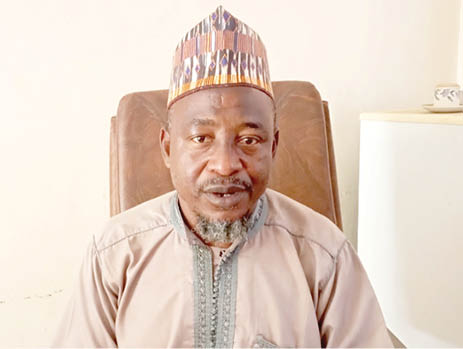In this interview with Weekend Trust, Ahmad Bello Dogarawa, a professor of accounting in the Ahmadu Bello University (ABU), Zaria, shared some insights into the tax bills.
What do you make of the tax reform bills before the National Assembly?
We know that reforms are a continuous part of the government as it strives to reposition institutions, establishments and even go ahead to amend laws in order to cater to the needs of the time. So, when we say tax reforms, we mean efforts made by a government to review, amend, vary or modify its tax system. Every country has a tax system, which depends on a number of factors. A government will, therefore, embark on a reform with a view to improving some of the requirements and provisions of the tax regime it is operating. It can also embark on reforms in order to make the tax policy or system more robust and in tandem with the realities of the time. Put simply, when you say tax reforms, you mean an effort by the government to either increase, expand, reduce, modify, vary or amend its tax system.
Northern governors and leaders have criticised the bills. Why is that so?
I really don’t think the North is the only region kicking against the tax bills. In the other regions, maybe due to either politics or lack of information, we don’t hear many people attacking it; but I can confirm to you that I have read a number of analyses, rebuttals and criticisms against the reform by many professionals and intellectuals, including professors, especially from the South-east. So it is not a regional or tribal thing, it affects the entire country.
People are attributing the rejection/rebuttal to the North because during the last Northern Governors Forum meeting, which was also attended by traditional leaders, they made an open declaration that they were not happy with the bills. They even called on members of the National Assembly from their states to kick against it.
There are four bills before the National Assembly for consideration, out of which two seem to have attracted a lot of attention and raised a lot of dust. These are the Nigerian Tax Bill and the Nigerian Tax Administration Bill. These two bills contain some provisions generally considered to be unfair, lopsided and ill-timed, even for the country as a whole, not only the North.
In the whole discussion, two issues seem more visible, but from the view point of the governors, they are concerned with one item, which is the Value Added Tax (VAT). But we actually have more issues with two areas – the VAT and development levy, which are contained in the Nigeria Tax Bill.
Currently, what the country is operating in terms of tax regime is based on the provision of section 4 of the VAT Act, 2007, as amended; that is in terms of the rate. According to that section, 5 per cent is charged on all the products and services consumed, provided they fall within the taxable items because in taxation, there is usually what is taxable and there are other items enjoying tax exemption. So, if a product or produce is enjoying tax exemption, there will be no VAT on it. Also, if a service is under a tax exempt group, it is also not taxable, but any other thing that has been defined by the act as taxable, there is 5 per cent VAT on it for consuming or enjoying the service; that is the provision of section 4 of the VAT Act of 2007 as amended. However, the same act went further in section 38 to empower the minister of finance to amend, modify or vary VAT rate, which means that without going back to the act to amend it, the minister of finance can use his powers as guaranteed by section 38 to modify, amend or vary the rates.
The Finance Act of 2020 included a provision that increased VAT rate to 7.5 per cent. So, currently, we are being charged 7.5 per cent as VAT in Nigeria. Many people are saying that Nigeria is charging the lowest VAT rate across the globe, but now, the tax bills of 2024 have raised a lot of dust as they have provided for an increase in VAT rate. For example, if you check section 116 of the bills, the VAT rate now is being increased or proposed to be increased to 10 per cent in 2025, 12.5 per cent in 2026, 2027, 2028 and 2029; then from 2030 upward, the VAT rate will be increased to 15 per cent.
Looking at the economic realities in the country, especially with the removal of fuel and electricity subsidies, plus the floating of the naira, which led to skyrocketing of many commodities, we are concerned because we are an import- dependent country. So you find out that since we are importing them, prices of commodities have skyrocketed. Some of them almost doubled from the time the current government announced the withdrawal of fuel and electricity subsidies, plus the floating of the naira. We are now experiencing between 60 and 90 per cent increase in prices of almost all commodities.
One thing with VAT is that it is not a respecter of the financial status of people; it is for all because it is a consumption tax, so everyone will be affected. And this is what differentiates it from other forms of tax, for example, personal income tax, which is for those that earn up to N800,000 per annum as per the provision of the new bills. The bills have pegged personal income tax on a minimum of N800,000 per annum, so if you are earning less than that per annum, you are not supposed to pay any tax. I believe this is a plus to the bill because it is now making it compulsory for governors to pay good wages because the higher they pay workers, the more tax they get, and vice versa, but in the case of VAT, it is for all as long as you enjoy those goods and services.
So, if you increase VAT to 7.5 per cent or 10 per cent, you are exposing Nigerians to more hardship as many people cannot afford three square meals daily; some eat once, while others cannot even afford to eat in a day. So, if VAT is increased to 10 per cent, and after one year, to 12.5 per cent and after four years, 15 per cent, the people will be drastically affected. You can argue that many countries have increased their VAT, but we have to look at our own reality. Can we afford it; and what would be the impact of this on the lives of the people? Certainly, many people will be exposed to untold hardship. This is one issue we feel the government needs to look into. And members of the National Assembly need to be very careful about this because we believe it is ill-timed. This is really not the right time to increase VAT or anything about taxation. People are suffering, so it is not good to increase VAT.
The second aspect is the distribution of VAT proceeds. Section 77 of the second bill has raised a lot of dust; that is the Nigeria Tax Administration Bill. This section is on distribution of proceeds. In the current regime, distribution is contained in section 40 of the VAT Act 2007, which provides for how the revenue will be distributed. According to the section, after collection, the total amount or revenue generated from VAT is distributed, both vertically and horizontally- vertically, across the three tiers of government, and horizontally, between the last two tiers.
Starting with vertical distribution, when VAT is collected, it is subjected to 4 per cent deduction, which is given to the Federal Inland Revenue Service (FIRS) as cost of collection, and another 2 per cent to the Nigeria Customs Service (NCS) in-lieu of VAT on import duties, the remaining 94 per cent is reconverted into 100 per cent and shared vertically among the three tiers of government. The federal government takes 15 per cent, state governments and the Federal Capital Territory (FCT) take 50 per cent and local governments take 35 per cent. The share of states and the FCT, as well as that of local governments, is further subjected to another horizontal distribution. And the way they do it currently is that the 50 per cent that belongs to the government is converted into 100 per cent again and shared on 50 per cent equality basis, meaning that each state will get the same amount irrespective of population, generation efforts and how much VAT was collected from the state. Also, 30 per cent is distributed on the basis of population, then 20 per cent is reserved for derivation, which is really the main problem because in the act, derivation was not really defined. It is common to see laws or acts having interpretation sections towards the end. Yes, VAT act has an interpretation section but derivation was conspicuously missing.
Now, state governors are complaining because as it stands, Lagos, Ogun and Rives are the main beneficiaries of the 20 per cent derivation. The interpretation of derivation as per the current practice is that companies that file their returns on VAT, wherever their location or registered office, the state will be credited with that amount. Now, almost 85 per cent, if not more, of all the corporate headquarters we have, or businesses, are located in Lagos State, followed by Ogun and Rivers. Kano State has very few. So, it means that these three states are the ones taking the lion share; and Kano is taking less than one per cent, while Lagos is taking up to 80 per cent, if not more, followed by Ogun State, then Rivers because the definition of derivation has not been provided for in the act under the interpretation section.
Also, the way they are operating it now is that they are looking at the office address of the company that filed the return. If you take MTN for example, we are made to understand that it generates more VAT to Nigeria than any other company, so if you take all the branches of the MTN across the country, the company generates a lot of VAT, and after generation, MTN Kaduna will not remit its VAT directly to the FIRS, Kano will not do same, likewise all other MTN branches across the country; rather, the headquarters of MTN, which is located in Lagos will file the returns, and because it is the office that registered it, they would file the return, as far as VAT is concerned. It is that office that will be credited with the 20 per cent and it will be recorded that Lagos State generated the VAT. Unfortunately, section 77 of the Nigeria Tax Administration Bill (NTAB) repeated the same mistake or it was deliberate. But this time around, 60 per cent has been allocated for derivation. So, as it stands now, based on the provision of section 77 of NTAB, the vertical sharing has changed.
In this current bill, there is a little modification in the sharing as the federal government has ceded 5 per cent of its own share to be added to that of state governments and the FCT, which is now 55 per cent, and local governments will retain its 35 per cent, making a total of 100 per cent after deduction from the FIRS and the NCS. But after the vertical sharing among the three tiers of government, that of the local government will further be subjected to another sharing. Horizontal sharing is that 60 per cent of the sharing belongs to states and the local government is set aside for derivation.
Throughout the bill, there is nowhere they interpreted the term, derivation, the same way they did not interpret it in the VAT Act of 2007 as amended.
When we consider the complaints of many states regarding this derivation issue, after 17 years you would want to draft another bill and you would be referring to derivation. Is it not time to define what that derivation is; more so that you are jerking it up to 60 per cent? So, the 55 per cent belonging to states will be further distributed in a way that 60 per cent is set aside for derivation and only 40 per cent will be left for sharing among the states. Assuming the drafters of the bill decided to interpret the meaning of derivation in the context of the bill’s place of consumption and not place of production, meaning that if VAT is collected in Zaria Local Government, the 60 per cent derivation should go to Zaria. If they had interpreted it in that way, I don’t think anyone would raise any dust because that would have settled the matter once and for all. And state governments will find a way of empowering their people to be able to afford certain commodities so that when they consume them, they get it, and vice versa, thereby prompting healthy competition. But the drafters deliberately did not interpret derivation.
So, section 77 of the bill, as well as the increase in VAT rate, should be further interpreted in order not to raise more dust. If we leave it hanging, it means the implementers would one day come to tell us that it is not location of consumption but location of production. It is not for the North; and that is why many state governors, even from other regions, are saying they want the bill to be further scrutinised.
Based on all your analysis, do you think that one part of the country is being favoured?
One will not be able to say that with certainty; you know this is an era of democracy, and in Nigeria, everything has some political undertone. So, it is not completely out of place to say or assume that a particular section of the country is being favoured. Now, if you say they are trying to favour the South-west, what about other states, apart from Lagos and Ogun? So you can see that it is difficult to conclude.
But certainly, it is a wakeup call. By default, and as a result of our historical antecedents that Lagos was the federal capital of the country, all major companies have their headquarters there. So if you have a policy that will now tilt towards the headquarters of these companies, there is certainly a problem. I was told that the single MTN mast that gives them more money across the globe is located in Kano, so if you take 20 per cent of whatever VAT generated from that location to Lagos because that is where the headquarters is, there is no fairness because VAT is a consumption tax.
Do you think the current provisions of the bills should be amended; if so, which areas?
Yes, the area of development levy should be amended. Instead of saying you are going to starve Tetfund, NITDA and NASEME of funds, why don’t you leave it the way it is presently; the worst you can do is that if you don’t want TetFund to enjoy 3 per cent of profit-before-tax of companies that are specified—the NITDA, one per cent and NASEME, 0.25—and you want to centralise everything under a pole, at least the worst you can do is to say the sharing formula for 2025 and 2026 should be retained – Tetfund, 50 per cent; NITDA, 20 per cent; NASEME, 5 per cent, student loans; 25 per cent, although it will still affect the agencies greatly because they will end up having half of what they are currently getting.
What do you think can be done to get the North and all Nigerians to accept the bills, or do you think it should be discarded?
I am not one that thinks the bills should be discarded. I have read the bills and there are many good parts of it, especially the two that have raised a lot of dust. Yes, they should be discarded if the drafters are not ready to adjust and correct the issues that people are talking about. If they are ready to make the amendments, including the VAT rates and correct the sharing formula, or at least interpret the meaning of derivation, I believe the bills would, in the long run, be of benefit to the country.
What advice do you have for northern leaders?
Let them employ the services of experts to go through the bills, section by section, line by line, provision by provision, then come up with a summary in a tabula form of what they found injurious to the progress of the North. They can present it to the governors, who can take it up to discuss because as it is now, it is mostly based on emotions.

 Join Daily Trust WhatsApp Community For Quick Access To News and Happenings Around You.
Join Daily Trust WhatsApp Community For Quick Access To News and Happenings Around You.


